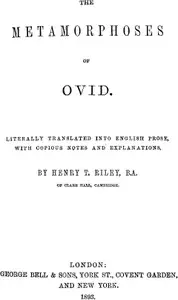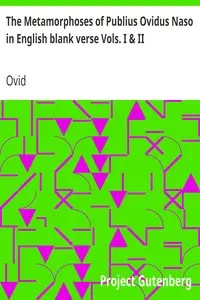"The Amores; or, Amours" by Ovid is a collection of elegiac poems written in the late 1st century BC. This work delves into themes of love, desire, and the complexities of romantic relationships, often with a humorous and playful tone. The poet, addressing his beloved Corinna, navigates through various scenarios of love and longing, showcasing both the joys and sorrows that come with such deep emotional entanglements. The opening of this collection sets the stage for Ovid's exploration of love's trials, starting with an epigram that suggests a shift in focus from epic battles to personal love stories. The poet humorously laments the overpowering influence of Cupid, who compels him to abandon his ambitious themes of warfare for the gentler subject of romance. As he pleads to love, Ovid reveals his passion and vulnerability, establishing a tone filled with yearning and introspection. Throughout this introduction, he intersperses moments of wit and wisdom about the nature of affection, indicating that the poems to follow will weave a rich tapestry of romantic experiences, adorned with both victory and despair. (This is an automatically generated summary.)

The Amores; or, Amours Literally Translated into English Prose, with Copious Notes
By Ovid
"The Amores; or, Amours" by Ovid is a collection of elegiac poems written in the late 1st century BC. This work delves into themes of love, desire, an...
Publius Ovidius Naso, known in English as Ovid, was a Roman poet who lived during the reign of Augustus. He was a younger contemporary of Virgil and Horace, with whom he is often ranked as one of the three canonical poets of Latin literature. The Imperial scholar Quintilian considered him the last of the Latin love elegists. Although Ovid enjoyed enormous popularity during his lifetime, the emperor Augustus exiled him to Tomis, the capital of the newly-organised province of Moesia, on the Black Sea, where he remained for the last nine or ten years of his life. Ovid himself attributed his banishment to a "poem and a mistake", but his reluctance to disclose specifics has resulted in much speculation among scholars.












